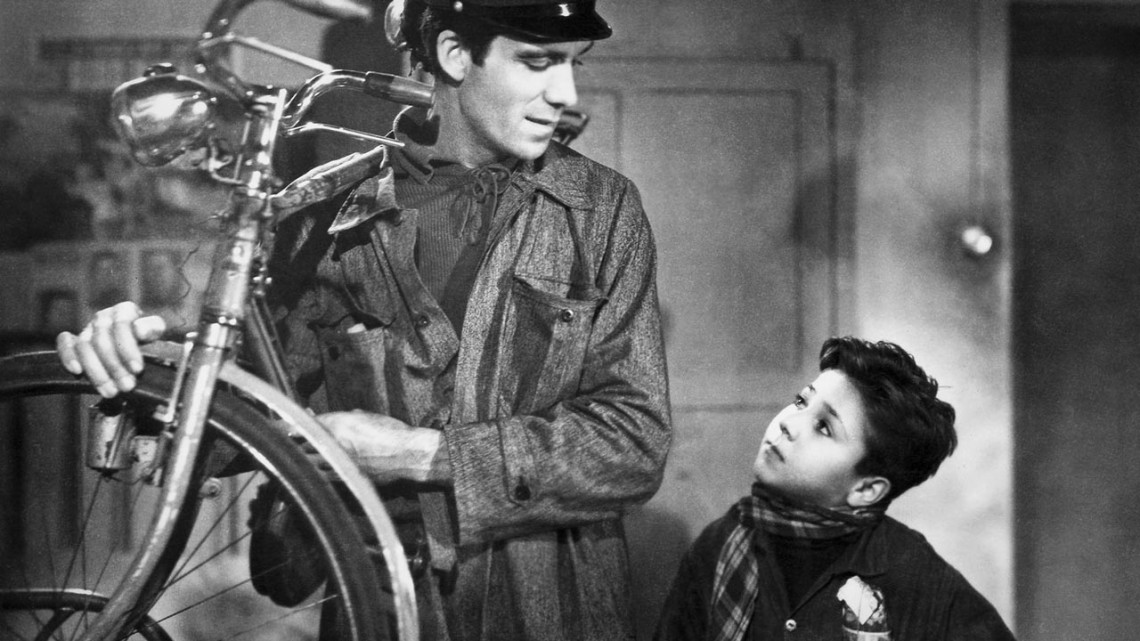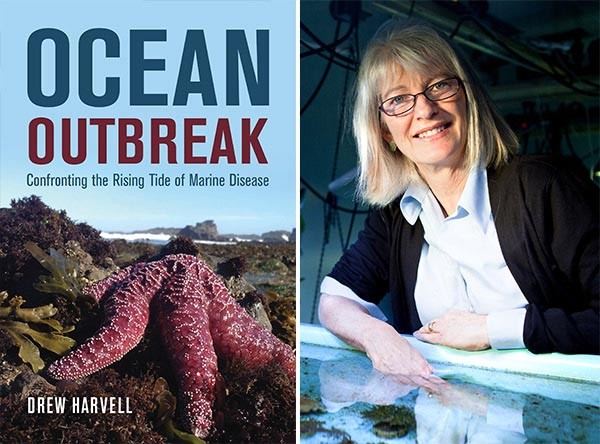
Vittorio De Sica’s “Bicycle Thieves” begins the Cinematic Cities film series Oct. 16 at Cornell Cinema.
Things to Do, Oct. 11-18, 2019
By Daniel Aloi
Indoor plant sale
Wild your home, office or dorm room with locally grown indoor plants, available at a plant sale hosted by Cornell Botanic Gardens, Oct. 10-13 at the Nevin Welcome Center.
Plants from Cornell Botanic Gardens, Tioga Gardens and Hortus Forum, Cornell’s undergraduate horticulture student group, will be for sale.
The sale is part of “Wild at Cornell” week, which closes with a basic house plant care workshop Oct. 13, 1-3 p.m. Plant experts from Cornell Botanic Gardens will help participants cultivate their own indoor gardens. The cost of the workshop is $25, $20 for members; registration online is required.
Cinematic Cities
Cornell Cinema and the Department of Romance Studies present Cinematic Cities, a series of classic and critically acclaimed films featuring Rome, Havana and Los Angeles, as well as Fritz Lang’s futuristic “Metropolis.”
The series begins with Vittorio De Sica’s “Bicycle Thieves,” Oct. 16 at 9 p.m. in Willard Straight Theatre; and Federico Fellini’s “La Dolce Vita,” Oct. 22 at 7 p.m. “I Am Cuba,” Nov. 5, is a propaganda art film from 1964, “a wildly schizophrenic celebration of Communist iconography, mixing Slavic solemnity with Latin sensuality,” according to Milestone Films.
“Metropolis,” featuring live accompaniment by The Alloy Orchestra, shows Friday, Nov. 8; tickets for the event are $16, $14 for students, with $3 off for All-Access Pass holders. The series then moves to L.A. for Charles Burnett’s soulful 1978 documentary “Killer of Sheep,” Nov. 12; and Sean Baker’s streetwise 2015 feature “Tangerine,” Nov. 19.
The film series is in conjunction with the course Cinematic Cities, co-taught by Romance studies professors Patricia Keller and Cecelia Lawless.
The Department of Romance Studies also co-sponsors the Francophone Film Festival, which begins Oct. 16 with the local premiere of Rosine Mbakam’s 2019 “Chez Jolie Coiffure” at 7 p.m. “Mariannes noires” shows Oct. 17 and “The Wild Boys” screens Oct. 18 and 20.
The Francophone series, 11 films in all, runs through Nov. 10. Most screenings will feature introductions by French language lecturer and film specialist Claire Ménard, along with other faculty and graduate students.
Oceanic diseases
Learn about ways to stop the spread of infectious diseases in the oceans in a Chats in the Stacks book talk by Drew Harvell, professor of ecology and evolutionary biology, Oct. 17 at 4 p.m. in 160 Mann Library. The event is free and open to the public, with refreshments provided.
In her new book, “Ocean Outbreak: Confronting the Rising Tide of Marine Disease,” Harvell explains how to protect aquatic ecosystems from dangerous diseases that threaten life in water and on land.
Harvell has devoted more than two decades to studying the devastating impact of diseases on four marine species – corals, abalone, salmon and starfish – and the destructive effects of sewage dumping, unregulated aquaculture and other human practices. She also gained insight on how to boost nature’s own pathogen-fighting systems to help heal fragile ocean environments.
Energy and the humanities
Scholars will take on the timely subject of energy at The Society for the Humanities’ annual fall conference. The conference, Oct. 18-19 at A.D. White House, is free and open to the public and will launch the 2019-20 focal theme for Society fellows in their interdisciplinary research and courses.
“Energy is too influential a force not to be included in how we understand politics, society and the individual; global conflict and the shape of the economy; and the form taken by our desires, affects, imaginings and sense of ourselves,” said participating scholar Imre Szeman, professor of communication arts at Waterloo University.
Caroline Levine, professor and chair of English, begins the conference with a talk, “The Humanist’s Guide to a Genuine Sustainability,” followed by a keynote lecture by Benjamin Kunkel, writer and co-founder of n+1 magazine.
The second day will feature a keynote by Szeman, “Eight Principles for a Critical Theory of Energy,” bookended by two panel discussions: “Nuclear Energy and Ruination” and “Animal Energy.” The latter panel includes Faculty Fellow Athena Kirk, assistant professor of classics, with “Brutes to Flutes: Ancient Greek Animal Powers,” from her project considering how animals have served as sites and sources of energy in ancient Greece.
Society fellows are studying energy this year in several different disciplines across the humanities, with projects including the use of hay as a form of energy; human energy, mania and psychosis; zombies and spiritual labor; and climate change and the social life of water in indigenous cultures, among others.
The nuclear energy panel includes Society Fellow Yu-Fang Cho of Miami University. Her fellowship year project, she said, is a study of “the lost histories of the bombs and bomb tests in the Asia Pacific” and their effects on Asian and indigenous peoples and ecologies. Her presentation brings awareness to these forgotten histories through analysis of cultural symbols like Godzilla, Hello Kitty and robots.
Fall Employee Celebration
Tickets are on sale now for the Fall Employee Celebration for staff, faculty, retirees and their families, Saturday, Oct. 26.
Discounted tickets are available for $5 through Oct. 18 at the Athletic Department Ticket Office in Bartels Hall, open weekdays, 10 a.m. to 4 p.m.; by calling 607-255-4247; or online.
The celebration features a variety of athletic events from 11:30 a.m. on (admission is included), and a Community Dinner from 2:30 to 5 p.m. in Barton Hall with Cornell chicken barbecue and pasta with grilled vegetables. Vegan and gluten-free options are available.
Volunteers are needed to set up in Barton Hall from 12:30 to 2:30 p.m., serve between 2 and 4 p.m. or 3:30 and 5:30 p.m., or clean up from 5 to 7 p.m.
Volunteers working two hours or more receive a free ticket and a T-shirt; email if interested or sign up online.
Media Contact
Get Cornell news delivered right to your inbox.
Subscribe


